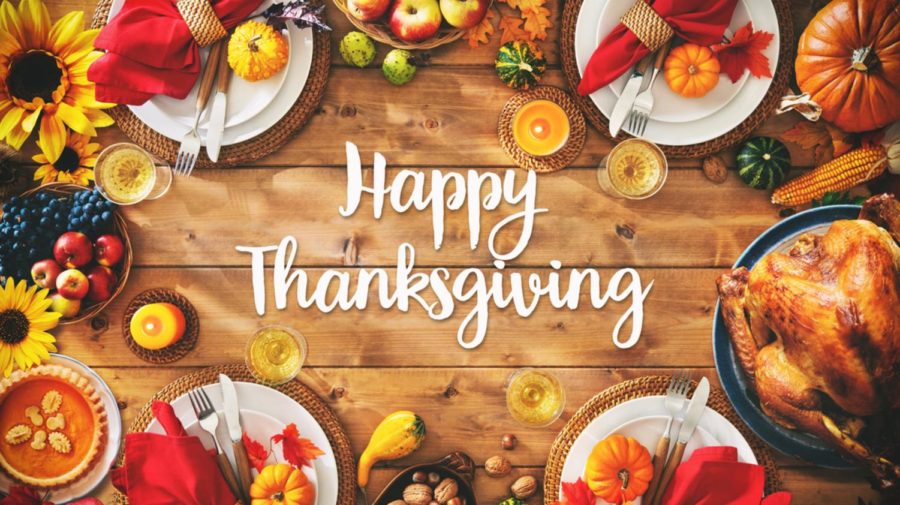Allow Me To Change Your Mind: Thanksgiving’s Tradition Restrictions
As November continues, there is a certain holiday not only overshadowed by the marketing and popularity of Christmas but one that represents the finale of the fall season. That holiday is Thanksgiving when we watch our favorite football teams play and we stuff our faces with food until we can’t take it anymore.
However, some foods feel like a requirement in order to have the traditional Thanksgiving meal and that’s what I’ll be talking about today. In honor of the holiday’s 400th anniversary since the first one in 1621, I’ll go over a brief history of these Thanksgiving mainstays.
Let’s start with mashed potatoes which, some sources say, can be traced back to the Incas in Peru around 5000-8000 BC. The recipe in its origin didn’t include modern luxuries like butter and toppings, though, while other sources claim they were created for a contest in the 1700s by Antoine Parmentier. Either way, the modern version didn’t surface until it appeared in “The Art of Cookery” by Hannah Glasse in the same century which was popular within the British colonies.
Moving to stuffing (or dressing, if you prefer) which does trace back to the first Thanksgiving, but the recipe was different. Sources claim the first recipes called for wild game and wild rice, but over time, it formed into the modern-day versio. There are even regional variants to the recipes, such as a chestnut for New-Englanders, Bostonians used oysters for their recipe and even the south got in on the stuffing action with cornbread as the base.
Next on the list is cranberry sauce which was consumed by the Native Americans; however, it cannot be confirmed they ate this at the first Thanksgiving. The modern-day equivalent didn’t appear until the late 17th century when recipes calling for sugar and water were uncovered. One source claims the modern recipe debuted in 1796 with the release of “American Cookery” while the canned variant was invented by a lawyer named Marcus L. Urann who quit his job at a law firm to run a cranberry bog.
Finally, we have the turkey, which wasn’t present at the first Thanksgiving. Oh, there was fowl there but it was, most likely, duck or goose. In fact, turkey didn’t become the de facto food of the holiday until the late 18th century which may be because of its large size and its large feeding capacity, Plymouth colonist Edward Winslow wrote about a “great store of wild turkeys” to link the three subjects together.
So … allow me to change your mind.
Thanksgiving is an important holiday and I’m not saying we should not celebrate. I have no problem eating traditional foods with my family but what really rubs me wrong about the holiday is the feeling that these foods are the only ones we are allowed to eat for dinner that day. This makes the holiday feel restricted and lose what Thanksgiving is about, which is the concept of family and togetherness overall. One of the main problems is we think so much of the integral Thanksgiving foods that we think, without them, we wouldn’t be celebrating a “real” Thanksgiving dinner.
The main culprit behind all of this is the turkey itself which has been established as “the” food to celebrate Thanksgiving. People go to great lengths to get that coveted Thanksgiving food but, in my opinion, it’s more trouble than it’s worth. If I were to offer an alternative for turkey, a turkey breast you can get from your local supermarket is a good alternative.
Another factor that makes me feel indifferent to this holiday has to do with the tradition restriction that it must be celebrated on the fourth Thursday of November and must be celebrated with your family. That feels like friends are left out of the equation entirely. Many people are thankful for a lot of things and that includes the friends we have met, saw or made in the last year.
My biggest gripe with the holiday itself is that, with all the stuff we supposedly need in order to make Thanksgiving happen, we forget about what it all about and that should be coming together and spending time with the family that we owe our lives to. You can still celebrate, but you don’t have to celebrate with your immediate family (aunts, uncles, cousins); you can also celebrate with friends. Heck, there is even a modern-day Thanksgiving dinner equivalent called Friendsgiving which needs more love and has been evolving into a replacement of the traditional Thanksgiving holiday.
Friendsgiving takes place during the week of Thanksgiving so the date is more open to make sure everyone on the list can participate. Friendsgiving is usually celebrated by having potluck style food which allows more freedom in food choice and you don’t have to drag relatives from the other side of the country to celebrate it.

